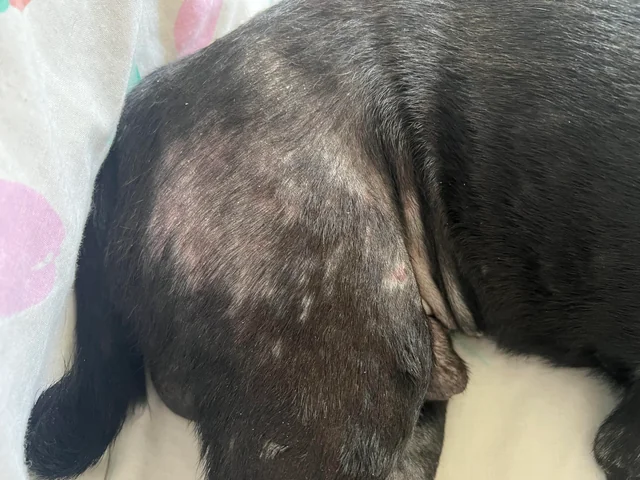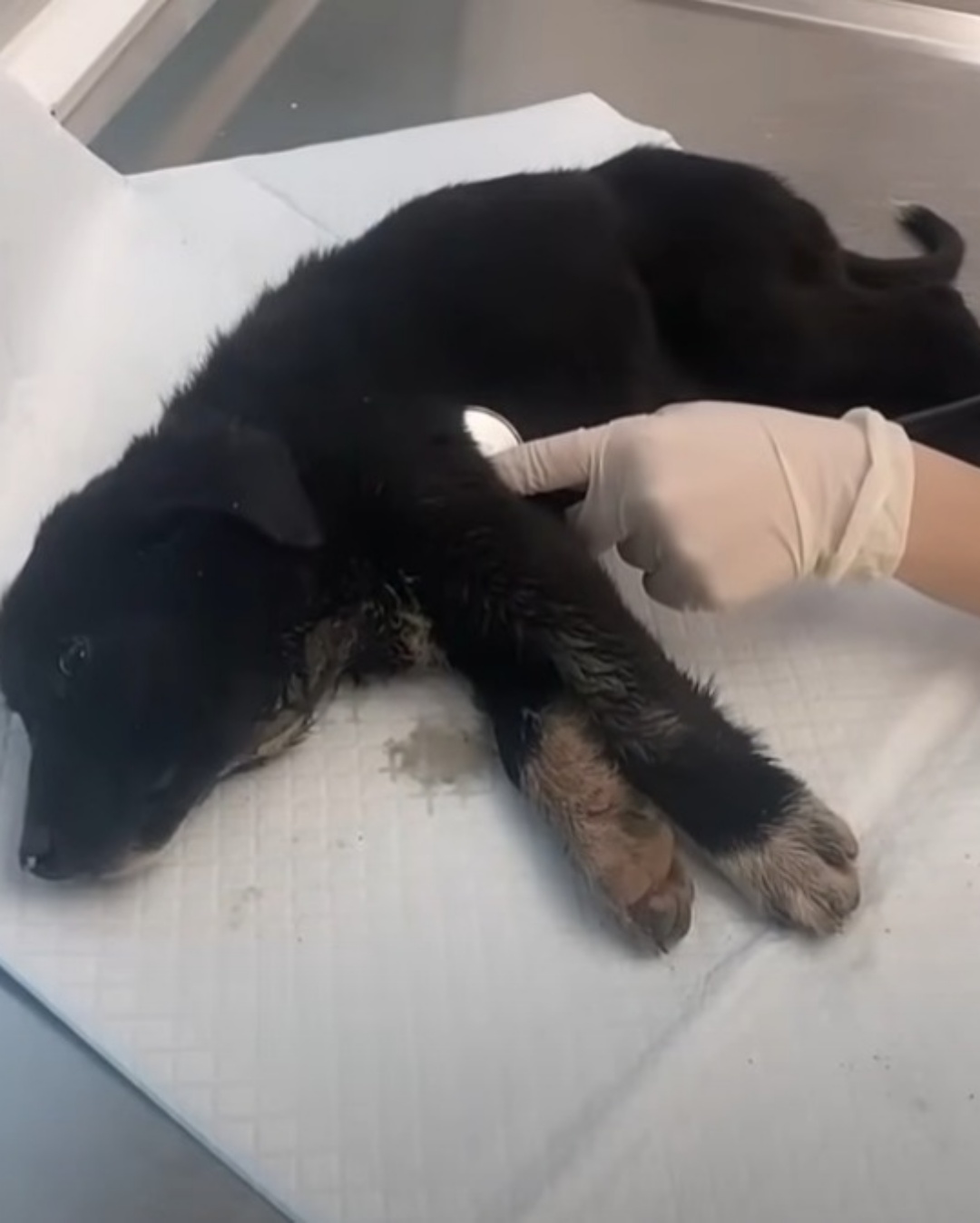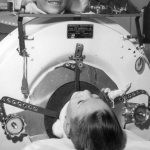Dexter Was Left to Die in the Trash — Today He Runs and Plays

He was only a month old when his life was almost over before it even had a chance to begin. A tiny puppy, discarded in the trash as if he were nothing, left to die alone. His frail body shivered against the cold metal, his ribs pressing against skin too thin to offer warmth. He was too weak to even cry, his voice silenced by hunger and infection.
This was how rescuers found Dexter. At first glance, many might have thought it was already too late. His little chest rose and fell so shallowly it was almost invisible. His eyes were half-closed, glazed with fever. He had no mother to comfort him, no siblings to huddle against. Just emptiness and the smell of garbage.

But inside that fragile body was something stronger than anyone could see: the will to survive.
When the rescuer lifted him from the trash, Dexter didn’t whimper—he simply leaned into the warmth of human hands, as though he knew this was his last chance. He was rushed to safety, wrapped in blankets, and placed under the care of people who refused to let him go without a fight.
The first days were the hardest. He couldn’t eat on his own, so he had to be fed carefully, drop by drop, every few hours—day and night. His body was fighting infection, so medicine was given with hope and trembling hands. He had to be bathed gently, his tiny paws cleaned, his ears checked, his skin treated. Every touch was cautious, every moment filled with both fear and determination.
Two weeks passed like this. Two weeks of sleepless nights, alarms set for every feeding, whispered prayers spoken over a fragile body that seemed so close to giving up. Each morning, the rescuers held their breath, wondering if he would still be alive when the sun came up.
And then, one morning, something changed. As they leaned over his little bed to check on him, his tail moved. Just the smallest wag, faint and shaky—but real. That tail wag was more than a movement. It was a message: I’m still here. I’m still fighting.
Tears filled their eyes. That simple gesture, so small yet so powerful, marked the beginning of Dexter’s new life.

From that moment, progress came steadily. His appetite grew. His legs, once too weak to hold him, began to push against the ground. His eyes opened wider, brighter, filled with a spark that had been missing before. Soon, he was exploring corners of the room, sniffing curiously, and stumbling into laps with a puppy clumsiness that made everyone laugh.
The puppy who had once been silent now barked. The one who couldn’t stand now ran. The one who had been left to die now played, wagging his tail with so much joy it seemed impossible to believe he had once been found in a pile of trash.
Today, Dexter’s transformation is complete. His infection is gone, his fur is shiny, his body is strong. But more than that—his heart is whole. He runs across the yard with boundless energy, chasing after toys, leaping into arms, and greeting every person with a love so pure it feels like gratitude itself.
Dexter’s story isn’t only about survival. It’s about what happens when compassion meets courage. It’s about the way a single act of kindness—choosing to pick him up instead of walking past—can change the course of a life.
He reminds us that no life is too small or too broken to fight for. That hope can be found in the weakest places. And that sometimes, miracles arrive not as grand gestures, but as a puppy’s tail wag on a quiet morning.
Because once, Dexter was just a weak, dying puppy in the trash. Now, he is a symbol of second chances—living proof that love can turn despair into joy.
Now, he is a symbol of second chances—living proof that love can turn despair into joy.











